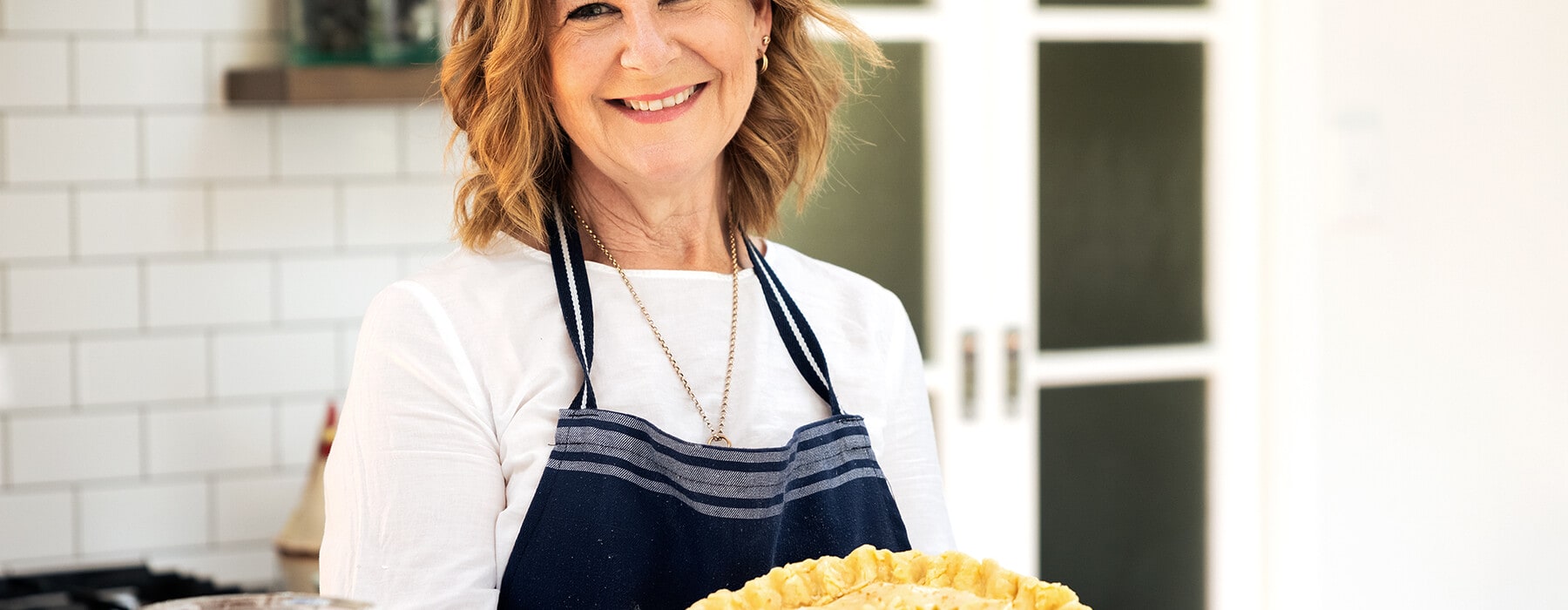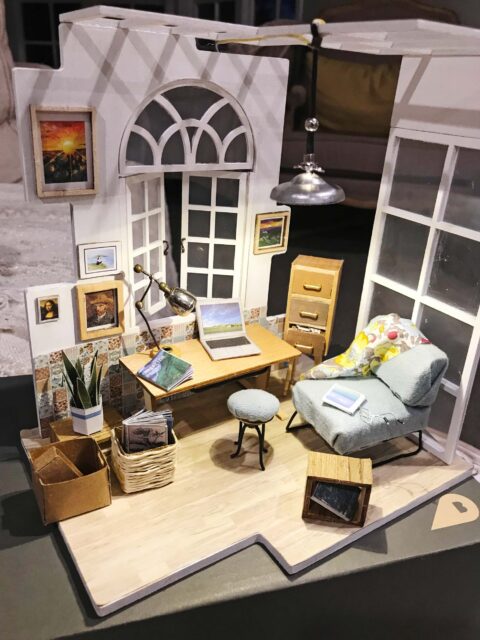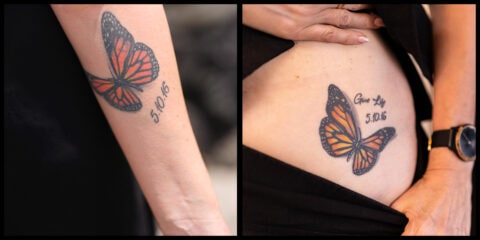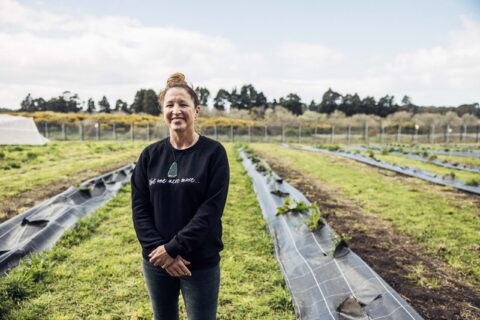When money was tight, Sophie Gray reinvented herself as a poster child for gourmet cooking on a budget. She talks to Emma Clifton about getting out of debt and putting food on the table.
The origin story of Destitute Gourmet fits so naturally into the dregs of 2020, it feels only right that creator Sophie Gray is returning with a new cookbook this January. “It seems like grand design that this book is coming out after what will have been one of the toughest Christmases for many, many households,” she says.
Sophie, 54, feels completely comfortable with being somewhat of a poster child for how to get through meagre times. “It’s my journey,” she laughs. “I am New Zealand’s object lesson in trying to navigate your way through a tough financial time. I just feel…” she pauses. “Whenever I feel like I’ve just got myself into a reasonable position financially, the rug gets pulled out from under my feet and I’m like, ‘Oh. Here I am again.’
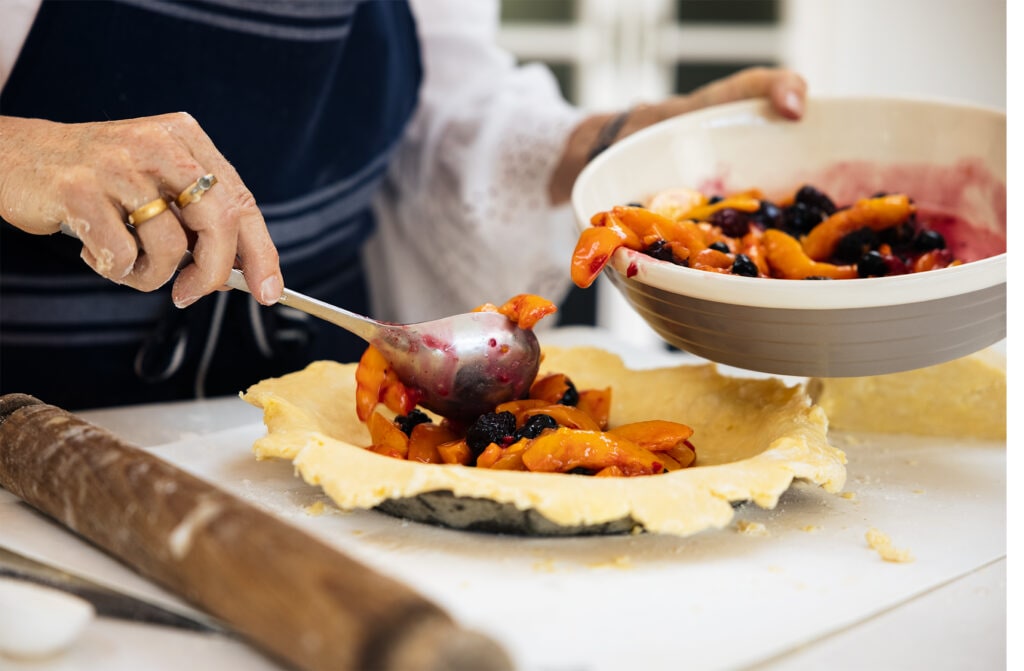
“It has made me wonder if this is where I’m supposed to be. I don’t have a lot of filters, so I am able to talk to people like me about the realities of walking your way through hard financial times, whereas a lot of people like me feel it’s something you have to keep secret.”
Sophie’s financial backstory will sound familiar to many New Zealand households. At 19, she managed to get herself into what she calls “stupid debt”. She was working in the financial sector, which required a “glittery image” of fancy clothes and socialising, then the stock market crashed and suddenly she was unemployed and left with significant credit card debt.
“I ended up in a dire financial hole and had a bit of an epiphany – which was much needed – about debt and what it does to you. What it does to your dignity; the levels of stress and how isolating it is. When I got a job, I made a very concerted effort to get myself out of debt very quickly and made a promise that I would never get myself into debt ever again.”
She met her husband Richard, they bought a house and had two children, Belle and Jack.

When she and Rich decided to launch their own business, Sophie stuck to her rule and refused to borrow for a start-up loan. “The week we launched the business, we went from having a normal sort of ‘North Shore’ income to being a low-income household in a decile 10 neighbourhood. We dropped, overnight, to a $20,000 income,” she says. “We had the most embarrassing car in the kindy carpark, because we didn’t have the flash company car anymore.”
The grocery budget was the one area Sophie found they could cut back. From her background working in restaurants, she knew how to make a little go a long way. “There was a spell where I was feeding our family – and entertaining – on a grocery budget of, at that time, $50 a week,” she recalls. “It was pretty lean, but we were probably eating the healthiest we’ve ever eaten.”
A friend asked her how the family was coping and Sophie talked through her cooking strategy, joking about being a “destitute gourmet”. That friend told another friend, who was part of a kindy group, who then asked Sophie to come and share her tips. All of a sudden, she was teaching groups of 25 adults, then 50, then 100. A nationwide tour followed.
This was, as Sophie points out, before the internet made viral-cooking fame so accessible – her first cookbook came out in 1999 and promptly sold out.
“Destitute Gourmet found its place in the New Zealand food scene as fashionable food that didn’t cost a fortune,” Sophie says.
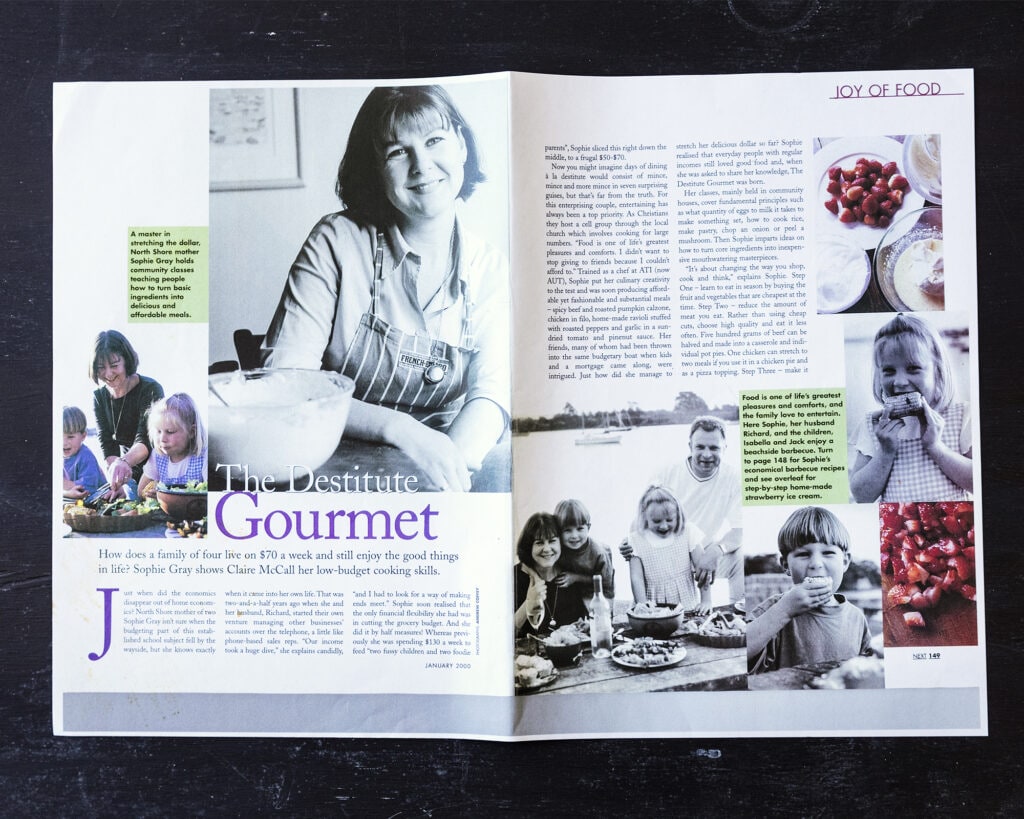
She is acutely aware that her story worked so well because she was able to put a friendly face on middle-class money struggles. “We were just an ordinary household – people who know what it’s like to roll up at school and find out that the board or the PTA have decided it would be great for the kids to do an activity, and it’s going to cost parents $25. For the PTA parents, that $25 might be nothing. But there are a bunch of parents for whom that $25 has to come from somewhere else; it might be the difference between doctor’s appointments, or haircuts,” she says. “That hasn’t changed for lots of families in New Zealand.”
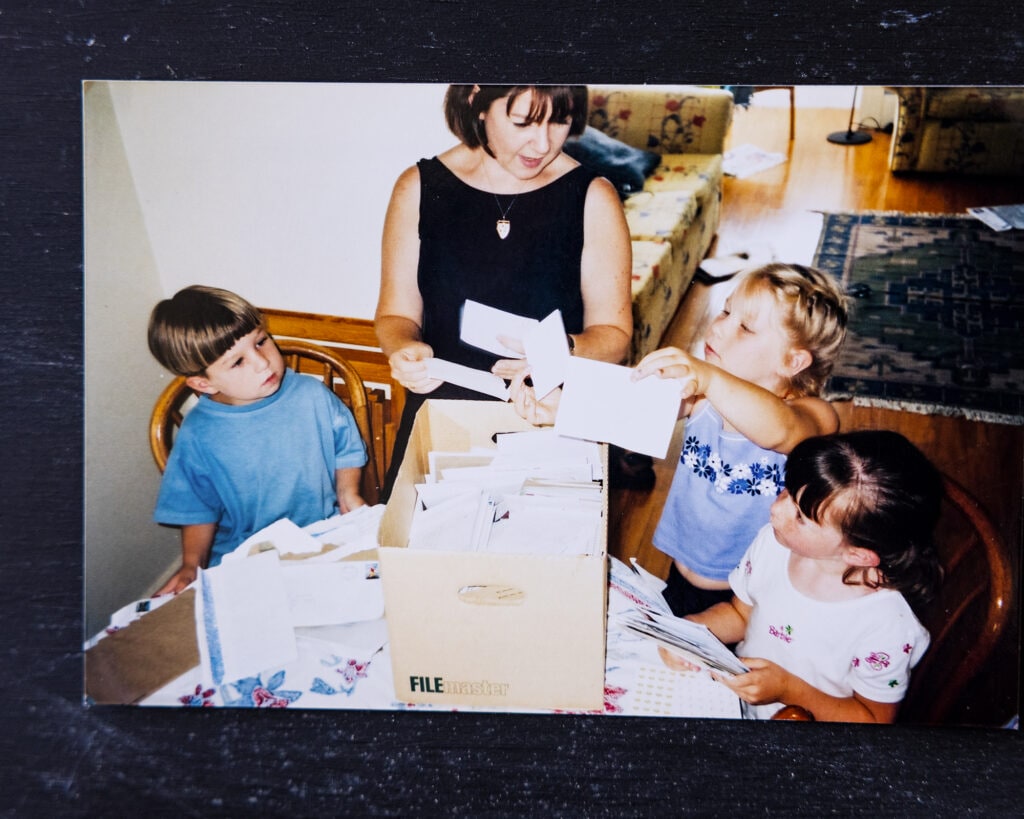
Destitute Gourmet continued to tick along in the background, via a very successful website and social media following, as Sophie took on other projects, including becoming the editor of Food magazine, one of New Zealand’s best-read food titles, and food director for Bauer Media.
But remember that comment Sophie made about the rug constantly being pulled out from under her? In April 2020, Food magazine was one of multiple titles that shut down, effective immediately, when Bauer Media made its entire New Zealand staff redundant over a five-minute Zoom call.
“I got off the phone, I spent nine minutes processing and then I started messaging people and planning,” Sophie says. “I just rolled into this other mode of working like a Trojan and then only in the last couple of months, since all the freelance work dried up, have I had the time to process the fact that I’m 54, unqualified and unemployed. And a woman,” she laughs dryly. “I’m at the bottom of the employment food chain… it took a while for that to sink in.”
She has spent the past few months looking for full-time work in a job market that has been flooded with other women doing the same thing. According to one statistic, 10,000 of the 11,000 Kiwis who lost their job during the first Covid-19 lockdown were women.
One of the part-time jobs Sophie has picked up in the meantime is working as community liaison for a local food bank, where the financial impact of 2020 – and life in general – is keenly felt. “Some of the food-bank recipients are people where this level of struggle is their normal,” Sophie says. “And then, the other day I delivered an emergency food parcel to a very salubrious address, with a Mercedes in the driveway. The recipient burst into tears of embarrassment when I called in. She started to tell me her story and I just said, ‘Look, there is no shame or judgment here.’”
This is the heart of Sophie’s work – breaking down the stigma around lack of money.
When you have been someone who has had a debt collector on their doorstep, you can understand that sense of terror and of shame.
“And when you learn how simple it can be to turn that around by making different choices, it’s like you’ve discovered a cure and you want everyone to know about it.”
The disconnect between people for whom Covid-19 has been a disruption, and for whom it has been permanently life-altering, is a wide one. “I’m conscious of it even in my extended family,” Sophie says.
Her daughter, a hairdresser who runs her own business, was unable to work in Levels 3 and 4. “Whereas, for the rest of our family, their jobs carried on as normal and they were still being paid every week. Covid-19 was an inconvenience, and there were things they couldn’t do, but they haven’t lost their livelihood. And they’re not suddenly finding themselves, utterly unprepared, in a job market that is currently swamped with people that are far more qualified than, say, somebody like me.”
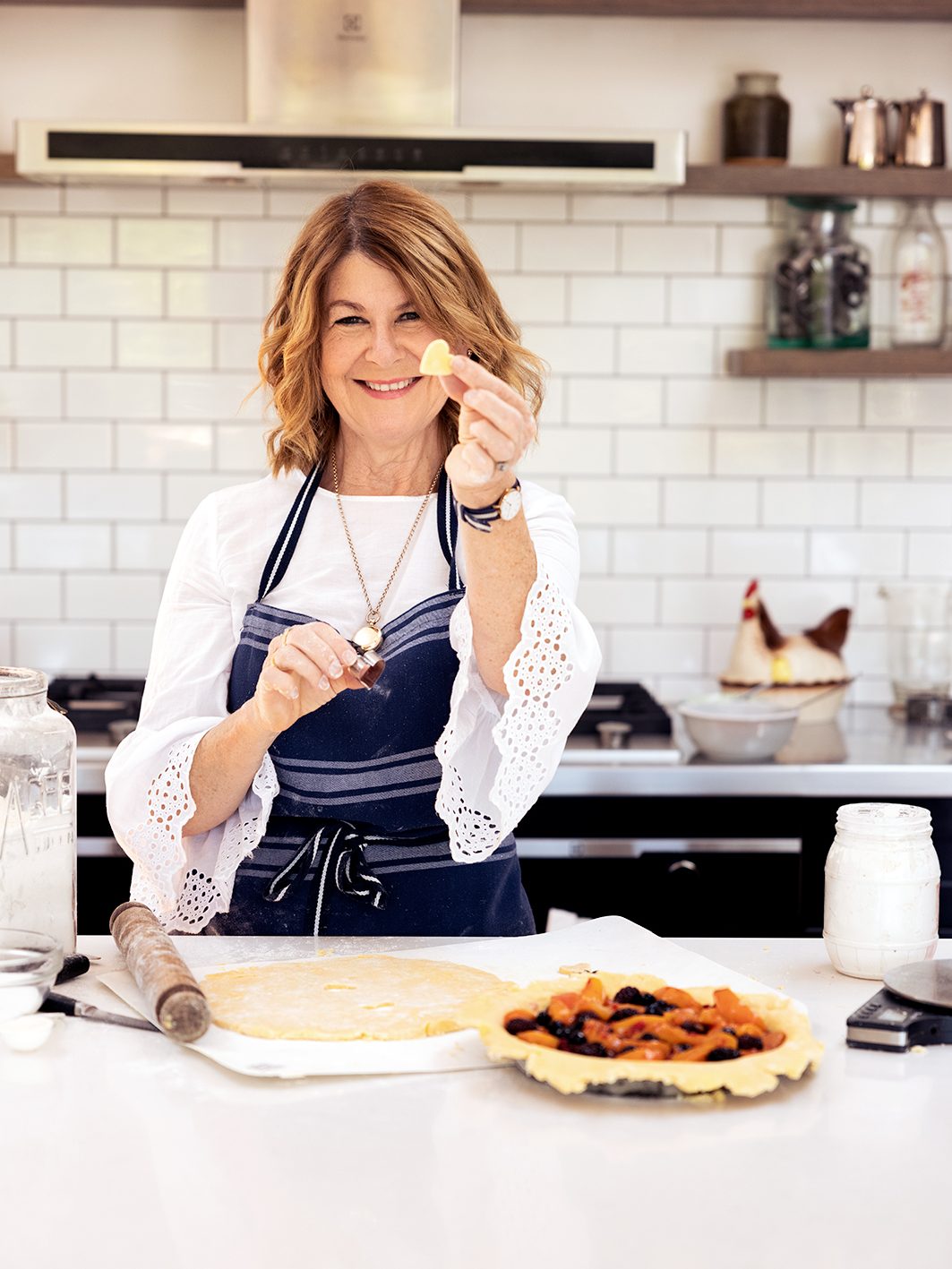
In times of such difficulty, food can be a way to bring comfort to a family – there’s a reason bread-baking became the number-one hobby of choice during lockdown. This is what Sophie hopes her cookbook – and her story – will bring to Kiwi families going through tough times. By making more food from scratch and eating seasonally, you can live a healthier, cheaper and more delicious life. “People often think that ‘gourmet’ means expensive, and it doesn’t – it just means ‘of good quality’.
“Cooking is restorative – not only are you making something nourishing for your household, but it makes you feel better as well,” Sophie says. “The idea of getting back into the kitchen might feel a bit old-fashioned, but it can actually be a very therapeutic, empowering and meaningful thing to do. Food is about connection – and it can be a very inexpensive way to connect you to your family and your friends, over the dinner table.”

